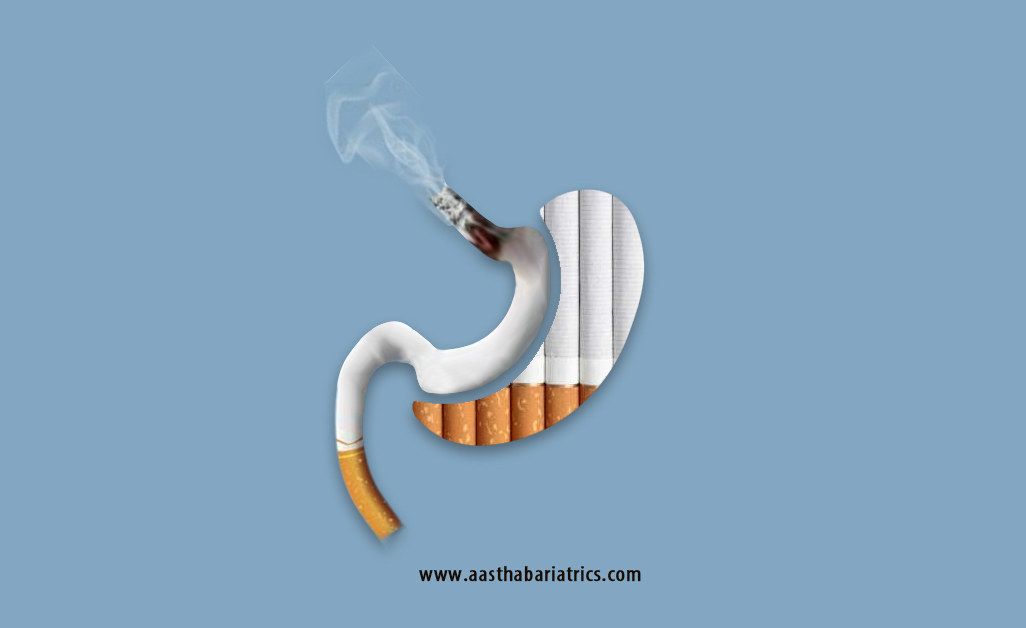
Smoking after Bariatric Surgery
Dr. Manish Motwani- Bariatric & Metabolic Surgeon (Aastha Bariatrics)
Overweight and obesity are defined as abnormal or excessive fat accumulation that presents a risk to health. A body mass index (BMI) over 25 is considered overweight, and over 30 is obese.
Obesity is generally caused by eating too much and moving too little. If you consume high amounts of energy, particularly 1 deposit casino canada.com fat and sugars, but do not burn off the energy through exercise and physical activity, much of the surplus energy will be stored by the body as fat.
Obesity does not happen overnight. It develops gradually over time, as a result of poor diet and lifestyle choices, such as: eating large amounts of processed or fast food – that’s high in fat and sugar. People who drink heavily and smoke heavily are often overweight or obese.
Among smokers, the risk of obesity increased with the amount smoked and former heavy smokers were more likely to be obese than former light smokers. Risk of obesity decreases after quitting.
There was a study conducted which controlled for age, alcohol consumption, and exercise, demonstrated that smoking increases abdominal and visceral fatness in smokers. We also found that the positive association of abdominal obesity with smoking is primarily mediated by an increase in visceral fat.
When Obesity goes beyond 30 BMI with some associated medical problems or beyond 32 BMI even without associated medical problems, Bariatric Surgery becomes the only solution for effective weight loss

Sleeve Gastrectomy, Mini Gastric Bypass, Gastric bypass and other weight-loss surgeries — known collectively as bariatric surgery — involve making changes to your digestive system to help you lose weight.
Gastric bypass is surgery that helps you lose weight by changing how your stomach and small intestine handle the food you eat. After the surgery, your stomach will be smaller. You will feel full with less food. The food you eat will no longer go into some parts of your stomach and small intestine that absorb food.
Since Obesity is a huge medical problem and associated with multiple other medical issues, Bariatric surgery is carried out with lot of caution and pre surgery preparation to achieve maximum results without complications. One
very important pre surgery requirement in patients who are Obese and are smokers is to quit smoking.
“Smoking is not a healthy habit. You don’t have to go looking for information to know this fact. Turn on the TV, get on any social media, or even look at the hoardings on the roads and you’ll come across countless anti-smoking advertisements that will tell you all the reasons why smoking is a bad idea for your health”, says Bhavini Mavani, Bariatric Nutritionist with Aastha Bariatrics, Mumbai
Tobacco use is the leading cause of preventable death in the world, followed shortly by obesity. Says Dr Manish Motwani – Director and Chief Bariatric Surgeon at Aastha Bariatrics, Mumbai, “If you are going through such lengths to get rid of one of these chronic issues, it is time to put the tobacco products away for good. Because cigarette smoking increases the risk of wound and respiratory complications, sepsis, and other adverse events after bariatric surgery, surgeons strongly advise patients to quit smoking 4 to 6 weeks prior to surgery.
Patients should stop smoking both before and after any Bariatric Surgery. Smoking may hamper organ functionalities and increases the risk of developing complications such as:
- Heart attack
- Strokes
- Pneumonia
- Lung disease,
- Blood clotting
- Increase of cancer,
- Marginal Ulcers
- Surgical wound infection
- among others
Bariatric surgery has a rather low risk factor, with under a one percent mortality risk. Among smokers, however, that risk doubles. This means that you are twice as likely to experience serious surgical complications leading to death if you are a smoker.
While smoking after bariatric surgery causes few ill effects as it relates specifically to the bariatric procedure, smoking in general can increase the risk of diabetes and heart disease – two of the very diseases that we are trying to eliminate with bariatric surgery.
Even after weight loss surgery, smoking could be a hindrance in your ability to lose weight, so also negatively influencing your health in drastic ways, even as your health would improve as you lose weight. Patients are also recommended to undergo a proper exercise routine for a successful weight loss journey. So, patients have to take into account that smoking decreases the stamina of the person, leading to unproductiveness as the carbon monoxide replaces oxygen in the body. Smoking also plain and simply just makes exercise that much harder.
With Weight loss surgery, the power to improve your health comes in your hands, offering you a chance to drastically increase your lifespan even, sometimes by as much as 10-15 years, Says Purvi Jain, Nutritionist with Aastha Bariatrics, Mumbai. Smoking puts a huge damper on health, and makes living up to the dietary and behavioural changes even harder. While working with a weight loss support group, patient should seek out a smoking cessation support group who can help them quit smoking for good. Once smoking and/or using tobacco products is stopped, it is recommended that it is never started again.
Aastha Bariatrics is a Centre of Excellence in Metabolic and Bariatric Surgery and one of the finest and sought after Bariatric Surgery centres in Mumbai, India and Asia. At Aastha Bariatrics, we provide a holistic care for Obesity patients to treat every problem associated with Obesity which has made inroads into the body of the patient.


